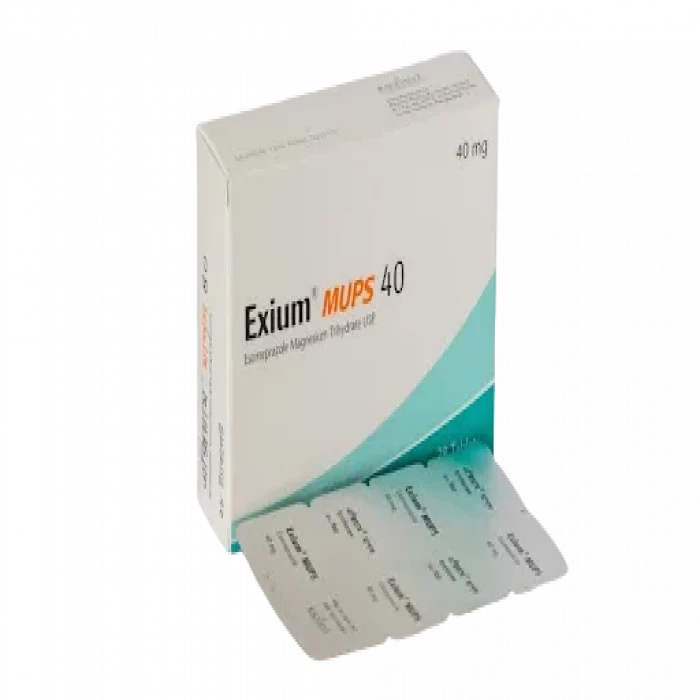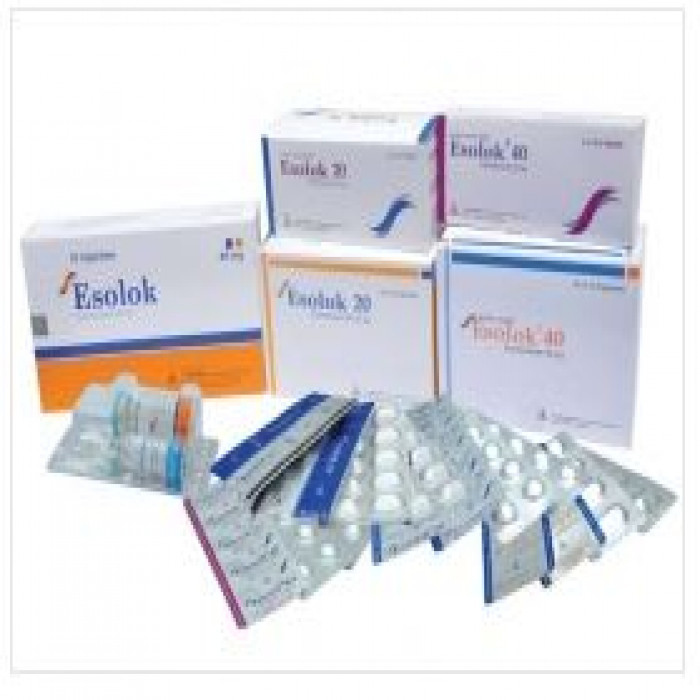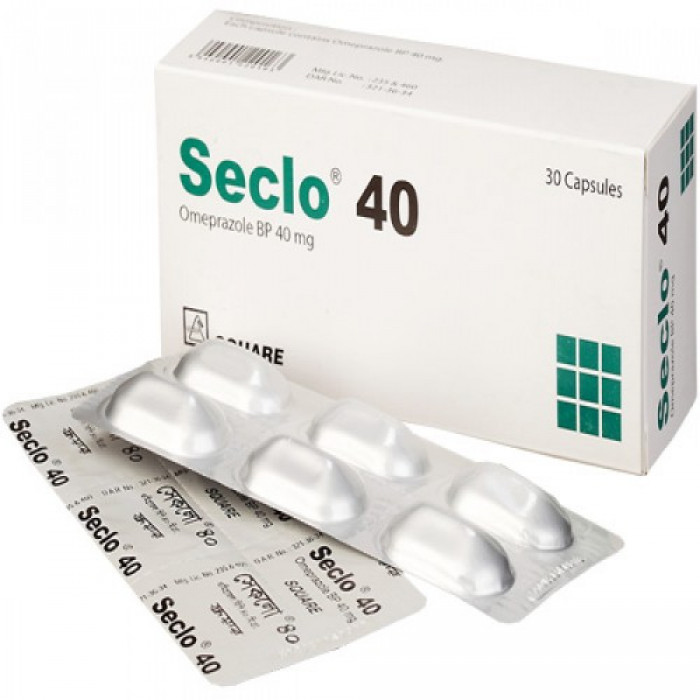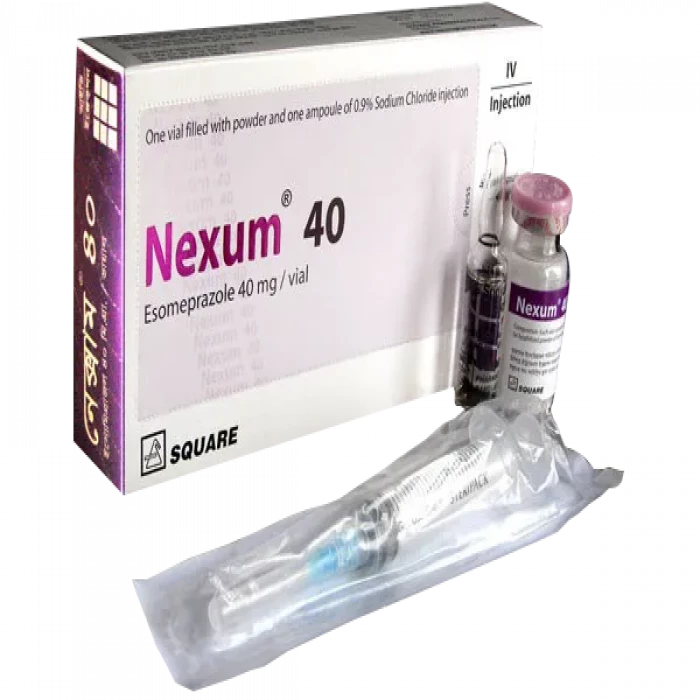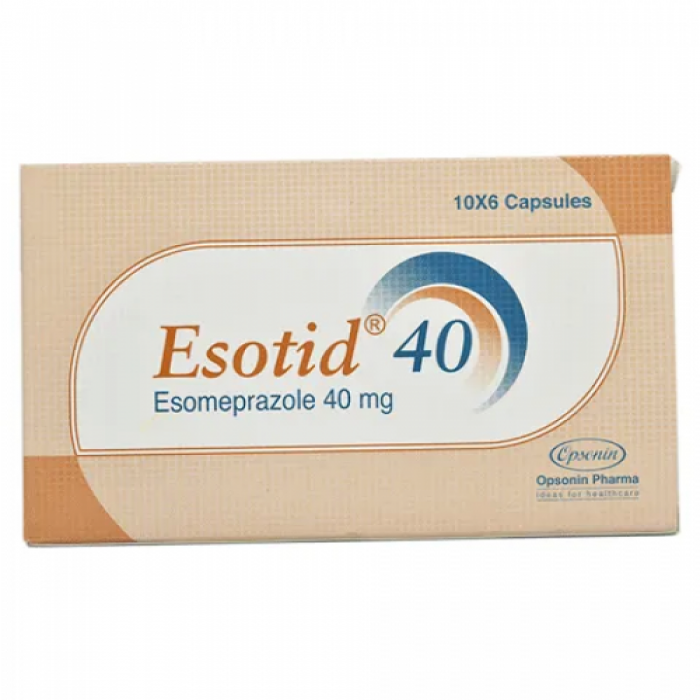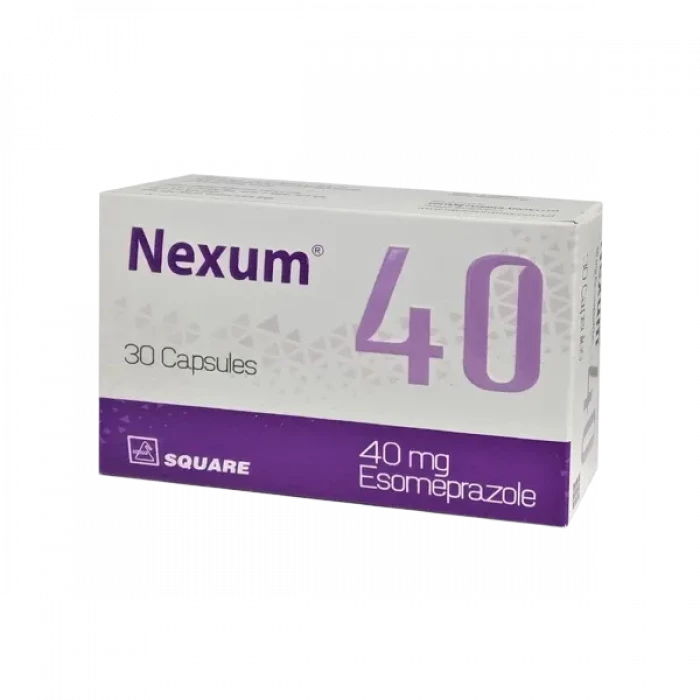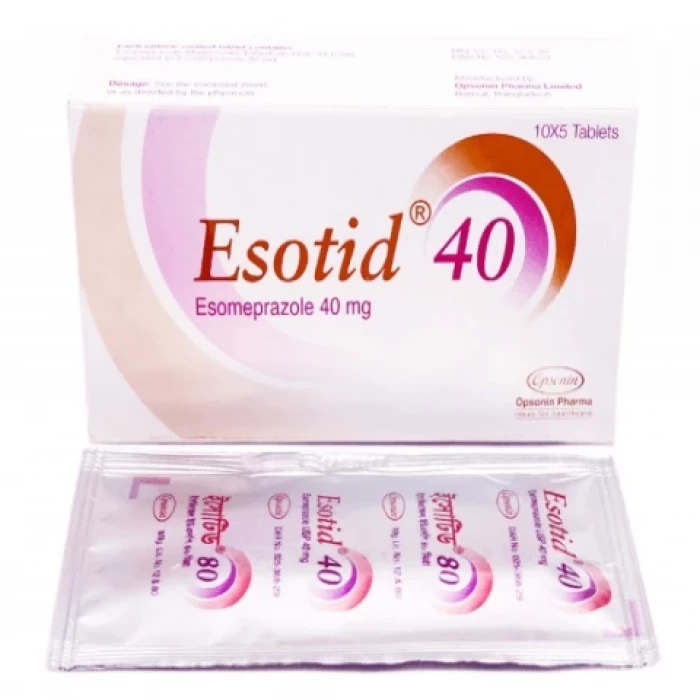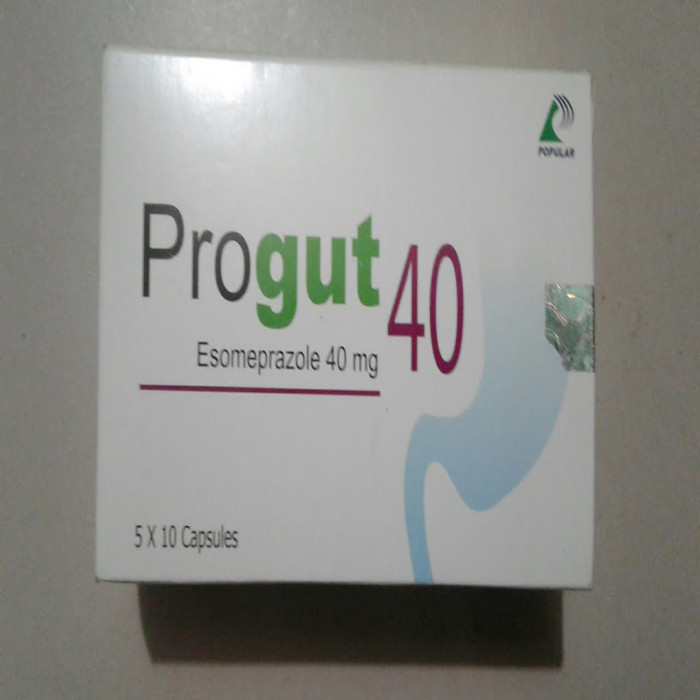
✔ 100% Authentic Product
👁️ Currently Viewing 1726
Progut Capsule 40mg 10pcs
Generic Name: Esomeprazole 40mg
Manufacturer/Distributor: Popular Pharmaceuticals Ltd.
Discount
Price: ৳ 105
MRP:
৳
110
5%
Off

100% Genuine Products, Guaranteed

Safe & Secure Payments, Always

Fast, Secure & Efficient Delivery

Proper Packaging
 Cash on Delivery - All over Bangladesh
Cash on Delivery - All over Bangladesh Regular Delivery - 12-24 Hours, Dhaka City* Charge Tk.39-59
Regular Delivery - 12-24 Hours, Dhaka City* Charge Tk.39-59 Regular Delivery - 24-48 Hours, Other Cities* Charge Tk.99-110
Regular Delivery - 24-48 Hours, Other Cities* Charge Tk.99-110
🌙 রমযান অফার 🌙
 ফ্রি ডেলিভারিঃ - ৭৯৯ টাকা+ অর্ডারে, ঢাকা
শহরে
ফ্রি ডেলিভারিঃ - ৭৯৯ টাকা+ অর্ডারে, ঢাকা
শহরে ফ্রি ডেলিভারিঃ - ২৭৯৯ টাকা+ অর্ডারে, ঢাকার
বাহিরে
ফ্রি ডেলিভারিঃ - ২৭৯৯ টাকা+ অর্ডারে, ঢাকার
বাহিরে
📲 মোবাইল অ্যাপ অর্ডারে সাশ্রয় বেশী
-
Google Play Store থেকে ডাউনলোড
-
Apple Store থেকে ডাউনলোড
100% Genuine Products, Guaranteed
Safe & Secure Payments, Always
Fast, Secure & Efficient Delivery
Proper Packaging
 Cash on Delivery - All over Bangladesh
Cash on Delivery - All over Bangladesh Regular Delivery - 12-24 Hours, Dhaka City* Charge Tk.39-59
Regular Delivery - 12-24 Hours, Dhaka City* Charge Tk.39-59 Regular Delivery - 24-48 Hours, Other Cities* Charge Tk.99-110
Regular Delivery - 24-48 Hours, Other Cities* Charge Tk.99-110 ফ্রি ডেলিভারিঃ - ৭৯৯ টাকা+ অর্ডারে, ঢাকা
শহরে
ফ্রি ডেলিভারিঃ - ৭৯৯ টাকা+ অর্ডারে, ঢাকা
শহরে ফ্রি ডেলিভারিঃ - ২৭৯৯ টাকা+ অর্ডারে, ঢাকার
বাহিরে
ফ্রি ডেলিভারিঃ - ২৭৯৯ টাকা+ অর্ডারে, ঢাকার
বাহিরে- Google Play Store থেকে ডাউনলোড
- Apple Store থেকে ডাউনলোড
🌙 রমযান অফার 🌙
📲 মোবাইল অ্যাপ অর্ডারে সাশ্রয় বেশী
✅ Description:
Indications of Progut 40
Esomeprazole is prescribed to treat chronic heartburn and other GERD symptoms.
In order to treat erosive esophagitis,
For the maintenance of erosive esophagitis healing
In patients with duodenal ulcer illness, in conjunction with amoxicillin and clarithromycin, for the elimination of Helicobacter pylori infection.
Syndrome of Zollinger-Ellison
Duodenal and gastric ulcers due to acid dyspepsia.
Pharmaceutical Name of Progut 40
Pharmacology
Esomeprazole is a proton pump inhibitor that inhibits the H+/K+-ATPase in the gastric parietal cell, suppressing acid output. The first single optical isomer of proton pump inhibitor, esomeprazole (S-isomer of omeprazole), provides superior acid control than racemic proton pump inhibitors.
Esomeprazole capsules contain an enteric-coated pellet version of esomeprazole magnesium for improved absorption. Peak plasma levels (Cmax) occur roughly 1.5 hours after oral dosing (Tmax). When the dose is increased, the Cmax increases correspondingly, and the area under the plasma concentration-time curve (AUC) increases thrice from 20 to 40 mg. The systemic bioavailability with repeated once-daily doses is around 90%, compared to 64% after a single dose. When compared to fasting conditions, the AUC following a single dosage of esomeprazole is reduced by 33-53 percent after food ingestion. At least one hour before meals, esomeprazole should be consumed.
Esomeprazole binds to plasma proteins 97 percent of the time. Over a concentration range of 2 20 mmol/L, plasma protein binding remains constant. In healthy volunteers, the apparent volume of distribution at steady state is around 16 L.
Esomeprazole is extensively processed by the cytochrome P450 (CYP) enzyme system in the liver. Esomeprazole's metabolites have no anti-secretory properties. The CYP2C19 isoenzyme, which creates the hydroxy and desmethyl metabolites, is responsible for the majority of esomeprazole metabolism. The sulphone metabolite is formed by CYP3A4, which is responsible for the remaining proportion.
Dosage & Administration
Healing of Erosive Esophagitis: 20 mg or 40 mg Once Daily for 4-8 Weeks. The majority of patients are healed within 4 to 8 weeks. For patients who don't heal after 4-8 weeks, an additional 4-8 weeks of treatment may be considered. Maintenance of Healing of Erosive
Esophagitis: 20 mg Once Daily (Clinical studies did not extend 6 months).
Symptomatic GERD: 20 mg Once Daily for 4 Weeks. If symptoms do not resolve completely after 4 weeks, an additional 4 weeks of treatment may be considered.
Helicobacter Pylori eradication: Triple Therapy to reduce the risk of Duodenal Ulcer recurrence-Esomeprazole 40 mg Once Daily for 10 days, Amoxicillin 1000 mg Twice Daily for 10 days, Clarithromycin 500 mg Twice Daily for 10 days.
Zollinger-Ellison Syndrome: The dose is 20-80 mg once daily. The dosage should be adjusted individually and treatment continued as long as clinically indicated.
Acid-related Dyspepsia: 20-40 mg once daily for 2-4 weeks according to the response.
Duodenal ulcer: 20 mg once daily for 2-4 weeks. Gastric ulcer: 20-40 mg once daily for 4-8 weeks.
Injection: The recommended adult dose is 40 mg Esomeprazole given once daily by intravenous injection (not less than 3 minutes) or intravenous infusion (10 to 30 minutes). Esomeprazole IV injection should not be administered concomitantly with any other medications through the same intravenous site. Treatment with Esomeprazole IV injection should be discontinued as soon as the patient is able to resume treatment with Esomeprazole delayed-release capsules. Safety and effectiveness in paediatric patients have not been established.
Interaction of Progut 40
CYP2C19 and CYP3A4 substantially metabolize esomeprazole in the liver. Esomeprazole does not appear to inhibit CYPs 1A2, 2A6, 2C9, 2D6, 2E1, or 3A4 in vitro or in vivo investigations. There should be no clinically significant interactions with medicines processed by these CYP enzymes. Esomeprazole has no clinically significant interactions with phenytoin, warfarin, quinidine, clarithromycin, or amoxicillin, according to drug interaction studies.
The principal Esomeprazole metabolizing enzyme, CYP2C19, may be harmed by Esomeprazole. When Esomeprazole 30 mg and diazepam, a CYP2C19 substrate, were given together, diazepam clearance was reduced by 45 percent. Increased diazepam plasma levels have been seen up to 12 hours following dosage. Gastric acid secretion is inhibited by esomeprazole. As a result, Esomeprazole may interfere with the absorption of medications whose bioavailability is influenced by gastrointestinal pH. (e.g., ketoconazole, iron salts and digoxin).
Contraindications
In patients who have a history of hypersensitivity to any of the formulations, esomeprazole is not recommended.
Side Effects of Progut 40
Headache, diarrhoea, nausea, flatulence, abdominal pain, constipation, and dry mouth are the most common side effects reported with Esomeprazole. When compared to short-term treatment, there is no difference in the categories of linked adverse events noticed with maintenance treatment up to 12 months.
Pregnancy & Lactation
In pregnant women, there are no sufficient and well-controlled trials. No teratogenic effects have been found in animal investigations. Esomeprazole excretion in milk has not been studied. If the use of esomeprazole is thought necessary, breastfeeding should be terminated.
Precautions & Warnings
General: A symptomatic response to esomeprazole medication does not rule out the possibility of gastric cancer.
Patients should take esomeprazole capsules at least one hour before meals, according to the manufacturer's instructions. One tablespoon of applesauce can be poured into an empty bowl for patients who have trouble swallowing capsules, and the Esomeprazole capsules can be opened and the pellets carefully spilled into the applesauce. The pellets should be combined with the applesauce and quickly eaten. The applesauce should not be heated and should be mushy enough to be swallowed whole. Chewing or crushing the pellets is not a good idea. It's not a good idea to keep the pellet/applesauce mixture in the fridge. When using esomeprazole, you can take antacids.
Storage Conditions
Store in a dry area at a temperature of not more than 30°C. Light and dampness should be avoided. Keep out of children's reach.
⚠️Disclaimer:
At ePharma, we’re committed to providing accurate and accessible health information. However, all content is intended for informational purposes only and should not replace medical advice from a qualified physician. Please consult your healthcare provider for personalized guidance. We aim to support, not substitute, the doctor-patient relationship.




